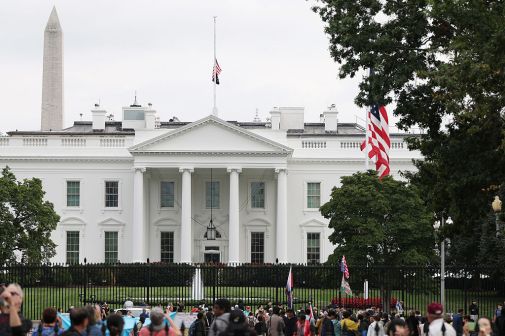Senate Republican’s DOGE Acts would codify Schedule F, freeze federal hiring and salaries

A package of bills introduced by Sen. Marsha Blackburn, R-Tenn., would freeze federal hiring and salaries for one year and reintroduce a merit-based compensation structure for federal employees, among other provisions.
Blackburn on Thursday announced on X a single bill as part of her DOGE Act, but a spokesperson from her office clarified in an email to FedScoop that she plans to introduce seven bills under that umbrella. The package would establish a pilot program for civilian employees in the federal government, codifying what President-elect Donald Trump attempted to establish during his first term with Schedule F. That bill would include a carve-out for agencies serving public safety and national security functions, meaning those employees would still have typical federal employment protections.
A Biden administration official with the Office of Personnel Management previously told FedScoop that the implementation of Schedule F — part of a 2020 Trump executive order that eases the president’s ability to fire federal workers — would harm the government’s ability to recruit top talent for tech, IT, cyber and artificial intelligence positions.
The Department of Government Efficiency, or DOGE, is a council that Trump is planning to form with Elon Musk and Vivek Ramaswamy to reduce waste throughout the government. The spokesperson told FedScoop that the DOGE Acts align with the duo’s “plan to make the federal government more efficient.”
The bills would allow each cabinet secretary appointed by the president-elect to reform federal agencies how they best see fit, and permit the hiring of political appointees by the incoming administration.
As part of the package, Blackburn also plans to include legislation that would freeze federal hires and salaries for one year, with a cap on future year hires for three years. This follows the Biden administration’s repeated calls for a tech talent surge, specifically focused on artificial intelligence. Democratic and Republican members of Congress have supported different pieces of legislation that would support the preparation of potential hires to work for the federal government within technology and tech-enabling positions.
Another DOGE bill would call for cuts in discretionary funding of up to 5%, with carve-outs for public safety and national security agencies.
Blackburn also plans to establish a commission that would report to Congress regarding the relocation of non-national security-related agencies out of Washington, D.C., and the surrounding metro area. According to data from OPM, approximately 15% of federal civilian employees live in and around D.C., with 85% of the federal workforce already living and working outside of that area.
A final bill from the Tennessee Republican would require executive agencies to submit to Congress a study of the impacts of expanded telework and remote work by employees during the COVID-19 pandemic, as well as a plan for each agency’s future use of telework and remote work.






